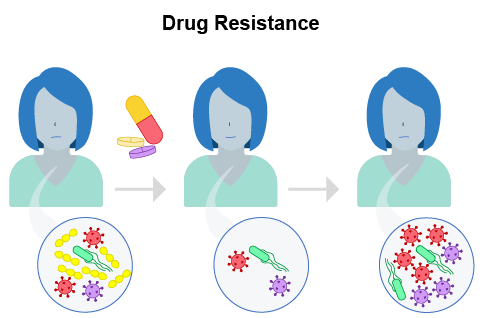Drug Resistance
Research in our laboratory is centered around understanding and combatting drug resistance.
Why Drug Resistance?
Drug resistance is a major obstacle in modern medicine, negatively impacting the lives of millions of patients and costing our society billions of dollars each year. In many cases resistance to drugs develops so rapidly that our most valuable drugs become obsolete shortly after their introduction to clinic. Therapy for numerous diseases have been significantly impacted by the emergence and spread of drug resistance; resistance occurs to anti-microbial (MRSA and TB), anti-viral (HIV, HCV, and influenza), anti-malarial, anti-fungal and anti-cancer (melanoma, breast cancer, and lung cancer) agents frequently leading to treatment failure.
While our research is focused on the molecular basis of antiviral resistance, we are passionate about discovering the parallels that can be drawn between disease states – with the goal of devising rational design strategies to limit occurrence of resistance. With this vision, Dr. Schiffer leads the Institute for Drug Resistance, which has established a vibrant interdisciplinary community of researchers and clinicians pursuing strategic solutions to drug resistance in quickly evolving diseases.
Our Approach
We take a problem-driven, multi-disciplinary and multi-technique approach to decipher the molecular underpinnings and mechanisms leading to drug resistance. We strive to apply a synergistic combination of various experimental and computational methods, and establish key collaborations with experts in other fields. We heavily rely on:
- Structural biology –having solved hundreds of crystal structures
- Parallel molecular dynamics simulations
- Structure based drug design
- Organic synthesis
- Enzyme inhibition and activity assays
- Deep sequencing data
Our unique integrative approach also aims to combine data from complementary techniques to effectively elucidate interdependency of molecular recognition.

